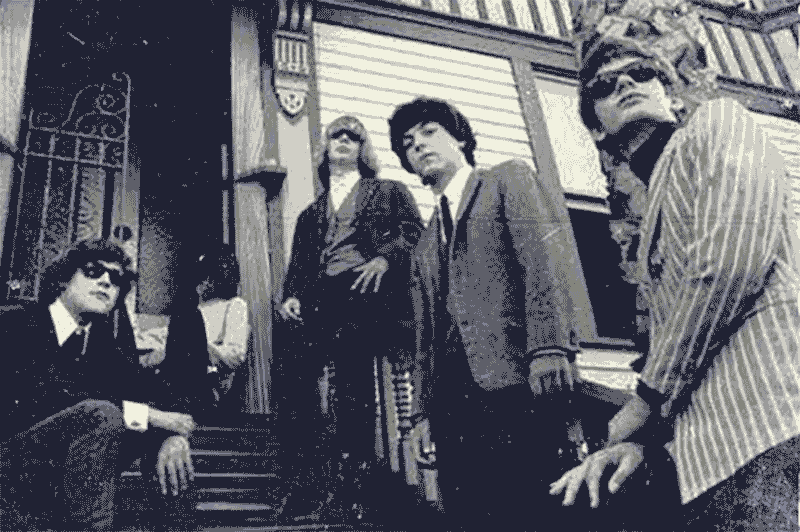Tonite We're Gonna Party Like It's 1966
Some rock history for all you rock history enthusiasts!
When I was writing for Creem, America’s only rock and roll magazine that billed itself as such® (I am proud of having added “that billed itself as such” and demand, after all these years, to be recognized for having done so), I received even more fan mail than I receive now, as a Substack contributor with an almost inconceivably huge readership. An attractive young woman who called herself Gail Warnings was displeased with the magazine for paying so little attention to a band from upstate New York called the Chesterfield Kings whose look ’n’ feel fairly shouted, “1966!”
What a year it was! The Beatles recorded and released their best album. Michelangelo Antonioni directed Blow-Up, which contained the second funniest sequence in cinema history, longhaired men who hadn’t the slightest interest in golf wore tartan trousers voluntarily, and I, afflicted by ferocious pollen allergies, spent the whole summer sneezing, and perishing of envy as the Inrhodes, featuring two former members of my own first band, became the Beatles of Santa Monica, opening for such giants as Them and the Yardbirds at the Santa Monica Civic Auditorium. Most importantly, a thousand bands who’d had two years since the Beatles on Ed Sullivan to learn to play their instruments and to let their bangs grow to eyelid length wrote regional hit records about (a) people looking askance at them because of their hair and tartan trousers, or (b) how awful women in general and their girlfriends in particular were.
The funniest sequence in cinema history is in The Border (1982). Jack Nicholson’s character’s wife, played by Valerie Perrine, has somehow gotten it into her purty head that Jack is making a lot more money as an immigration enforcement officer (and, later, human trafficker) than he actually is. He returns home from work one afternoon to see that she’s ordered more and more stuff, and explodes in anger, whereupon Valerie goes all righteously indignant and patronizing as he points out, “I am trying to build you a dream house!” Seeing it in 1982, I laughed so long and hard that Wife 1 was mortified with embarrassment.
The second funniest sequence in cinema history is the opening of one of the Austin Powers movies, with Mike Myers imitating Hemmings’ photographer character in Blow-Up. “Yes, yes!” he gasps as he straddles a writhing model, photographing her. But then she does something that displeases him, and he suddenly becomes as censorious as he was delighted. “No,” he says, “no!”
Many brazenly aped the Rolling Stones, but without the class resentment that few Americans would have recognized. “Play With Fire”, “Out of Time”, and “19th Nervous Breakdown” were all rebukes of the sort of young women at whose parties the Kinks, had once made a living playing, young women who imagined themselves better than the character Mick Jagger portrayed on record, though he came from a respectable Kent family, and went on to study at the London School of Economics, which produced few petrol station attendants. Presumably, ‘twas their manager who convinced them that expressing working class resentment might propel them to the toppermost of the poppermost.
In that same spirit, most of the official pop biographies of the time emphasized artist’s humble roots. Liverpool became almost uninhabitably gritty, though Mr. Lennon, at least, grew up in one of its most genteel suburbs. The Who didn’t come, as far as the press were told, from reasonably salubrious Acton, but from on-the-grimier-side-of-the-tracks Shepherds Bush, a place rough enough to have lost its apostrophe and front teeth in a Saturday night punch-up.
Lacking class resentment, the North American 1966 bands sang around 80 percent of the time about their girlfriends’ unfaithfulness, or neediness. My own favorite was the Syndicate of Sound’s “Little Girl” (later covered by the sublime Divinyls), wherein the singer seemingly unwittingly celebrates having been serially cuckolded. “Other girls did it. You didn't think of nothin' new,” he mockingly assures the 1966 version of Runaround Sue, “You went out on me, but other girls did it too.” Boy, that’s telling her, Syndi!
But back to Blow-Up. In the second funniest sequence in cinema history, Jeff Beck, doing his Pete Townshend impression, performs with the Yardbirds (including a much-amused Jimmy Page) at a London club packed with hopelessly bored young people. When his amplifier begins to buzz and crackle, he smashes it with his off-brand hollow-body guitar, ruining the instrument. (Guitar bores eager to identify the instrument’s manufacturer, year of manufacture, and serial number…start your engines!) Whereupon the formerly comatose crowd suddenly becomes ultra-engaged, and David Hemmings’ character must fight tenaciously for the guitar neck after Jeff hurls it into the audience.
Once out in the street, having somehow not been torn to pieces, he loses interest in it and drops it on the pavement and walks away.
A Tale of Rock and Roll Debauchery in a Time Before Sexually Transmitted Diseases
I’d wanted Calliope, the bass player, to be in the band because he was superhumanly pretty, and I figured he’d attract more maidens in Fred Slatten platform shoes than he’d know what to do with, and maybe some of them would regard me as a viable consolation prize. As for Thumbs, the guitarist, he wasn’t much for skirt-chasing, so we made a pretty ill-as…






